“Marius, Cosette and Jean Valjean, (she) was thinking about Victor Hugo, yes Victor Hugo with whom she had been secretly in love since the age of twelve."
Djavann is so good at what it’s like to be a foreigner in Paris on the outside of the language and yet so fantastically imbued with the literature. When I first went to the Luxembourg gardens on a September afternoon with a ham and baguette sandwich in my bag, my head was full of Camus’ l’Etranger which I knew almost by heart. Djavann’s Roxanne goes there (with beer and baguette in her bag) thinking about Victor Hugo.
Then there are countless other details that capture the gradual wearing down of this initial infatuation. The anaesthetising exhaustion of getting up at daybreak to queue for at the Prefecture for a carte de séjour, until when her turn comes she is,
“well beyond any anxiety. Had they guillotined her in the middle of the Conciergerie she would not have felt the least thing. Her neurons were out of order like sometimes happens with automatic cashtills. Not a single bit of information penetrated (her brain. )And she went on sitting on the red plastic chair.” (my translation) I’ve been talking about this book all week – in the week since I’ve read it – especially to friends I know settled in France from elsewhere – an Iranian/German couple, one an architect turned antiques dealer, the other a nurse, a Bosnian Serb taught music at home, who lived in Berlin for years before ending up a dental receptionist in the south of France. I give these details of their professions because Djavann expresses so precisely and ironically what it’s like to reinvent yourself as an adult in a language other than the one in which you grew up, studied and won recognition as a younger self,
“the first person ‘I’ was Roxanne the persophone, the second person ‘tu’was Roxanne the apprentice francophone and there was also a third Roxanne – Roxanne the referee who never gave up reproaching the persophone Roxanne for her sheer inability to become Roxanne francophone...(..)she punished the least fault, struck out with truncheon blows at Roxanne’s faltering memory”Then later, “She didn’t have a real voice. An artificial, hoarse sort of voice emerged from her throat. It was like she wasn’t talking but imitating how French people spoke, like a parrot....(....)
Djavann’s has that twisted humour of extreme situations I recognise from Marjane Satrapi’s famous Perseopolis, when describing extreme situations,
“(her)Persian grew quieter and quieter, slipped away. (Her) words of Persian got rarer and rarer and deserted (her)without being replaced by words in French. An emptiness, a word-ache grew out of this state of being, a ‘no-word’s land’”
I was going to say I’d like my daughters to read this and understand what it was we wanted to spare them when bringing them up in three languages, French, English and Persian. But of course even with three languages they’re still aliens in some other land. In fact I’ve just realised that this ‘gift’ - as indeed so much of what we think we "give" our children – is to ourselves. Ours is the ‘word-ache’ we’ve healed in giving them access to English and Persian along with French - their fluency breaks the silence of our own exile, voluntary or forced as the case may be.
Sunday, February 1
Subscribe to:
Post Comments (Atom)





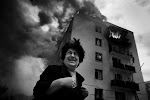



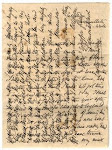

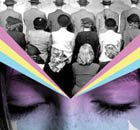
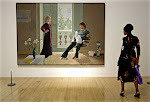











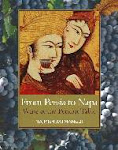






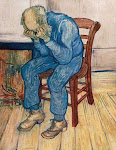



















No comments:
Post a Comment